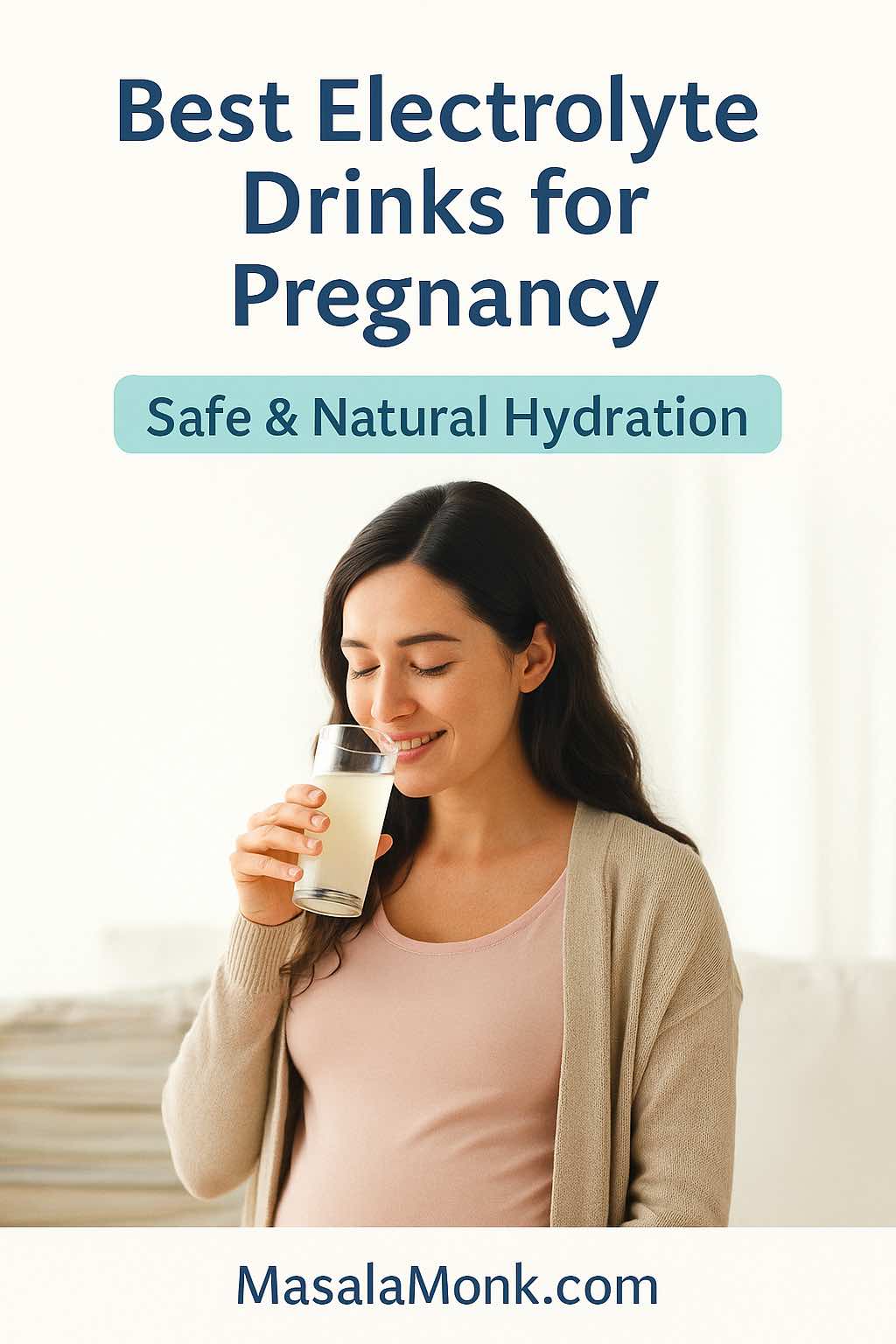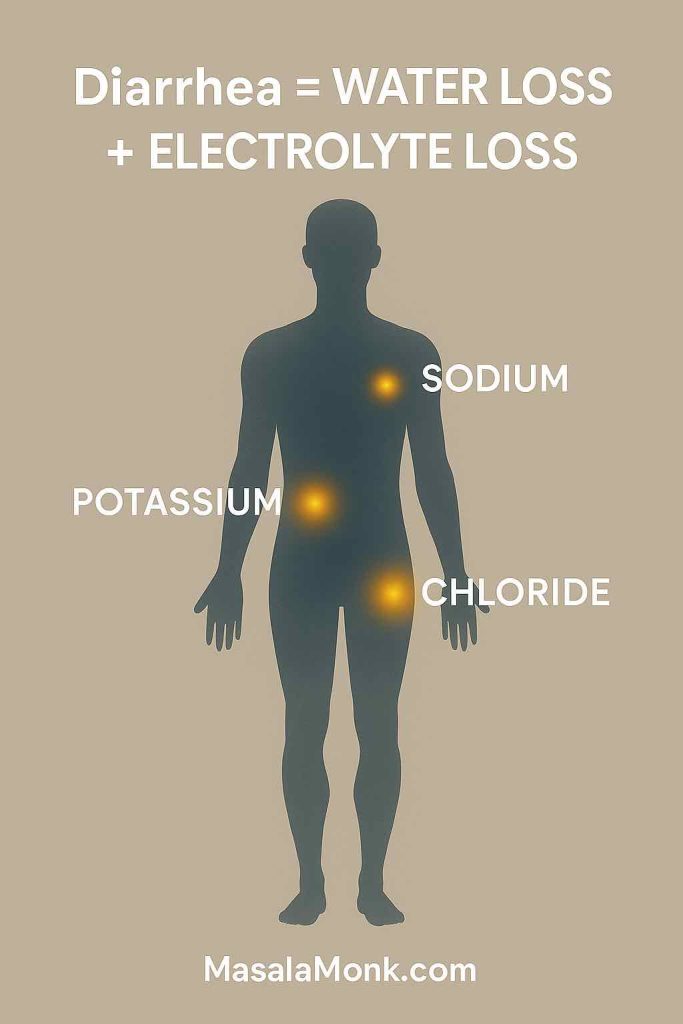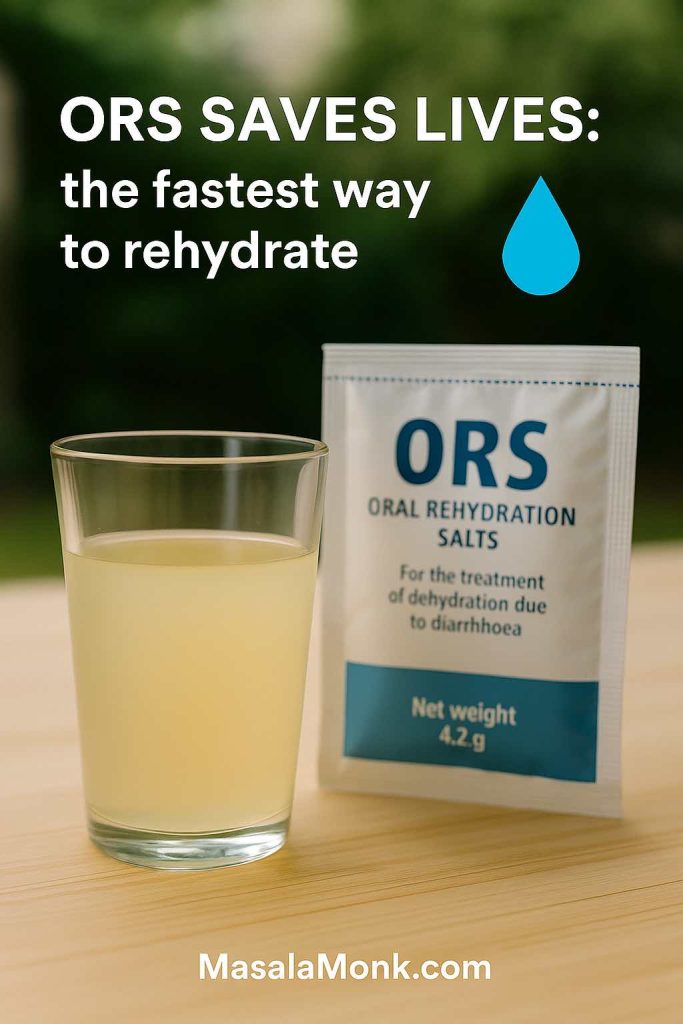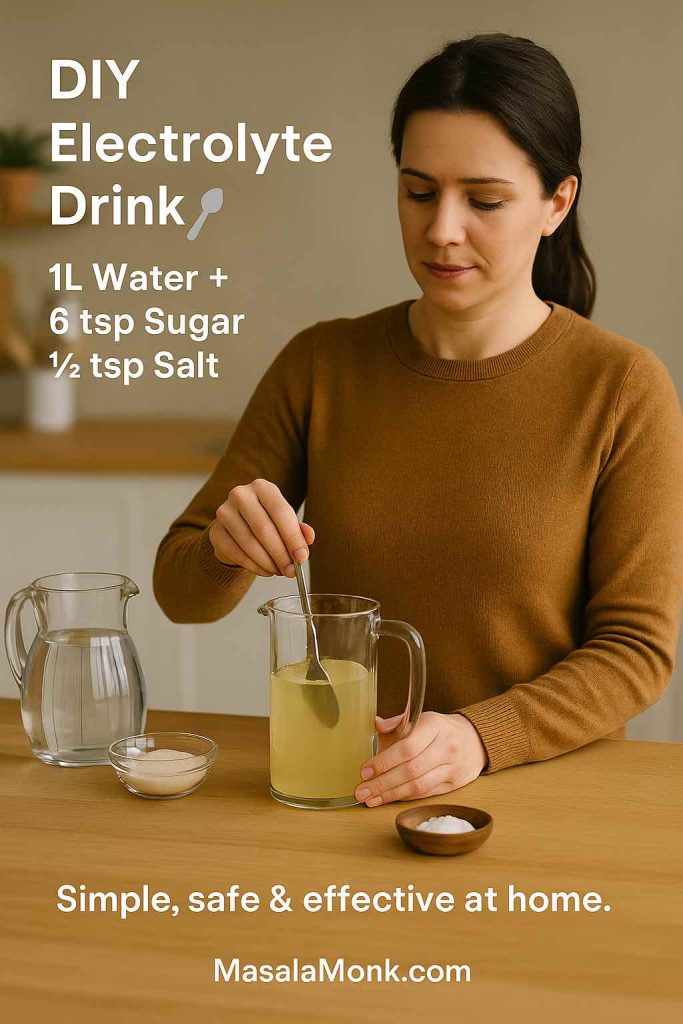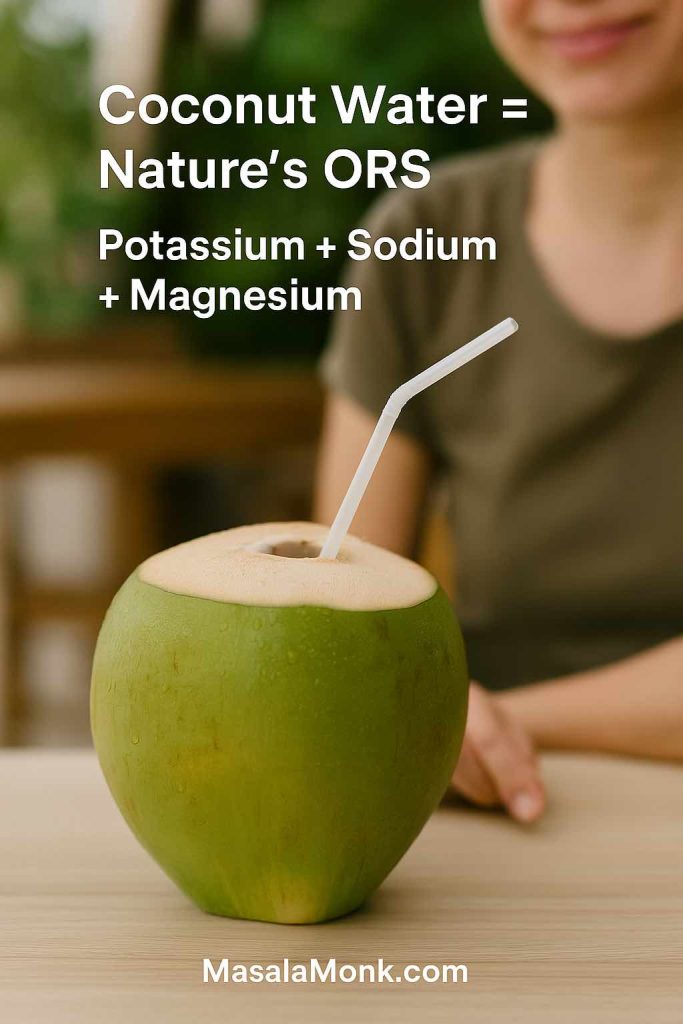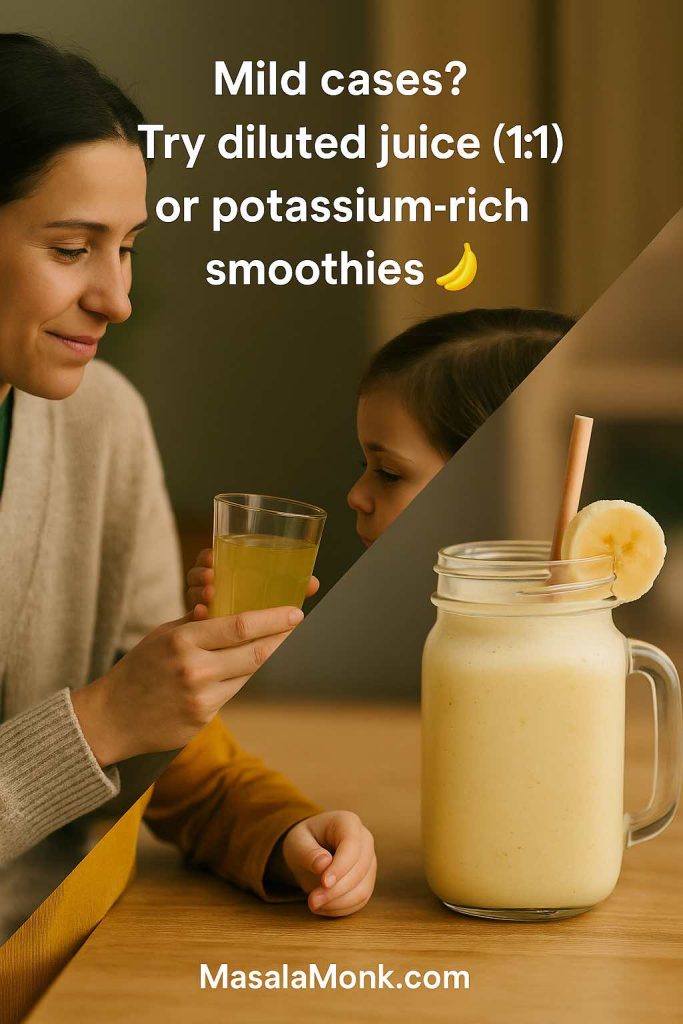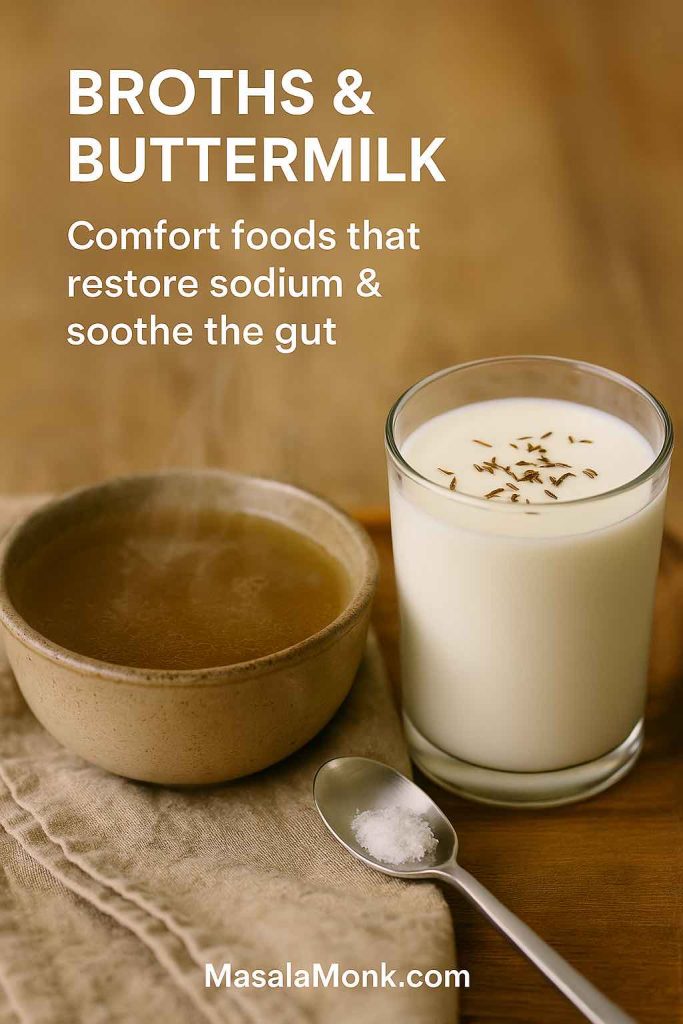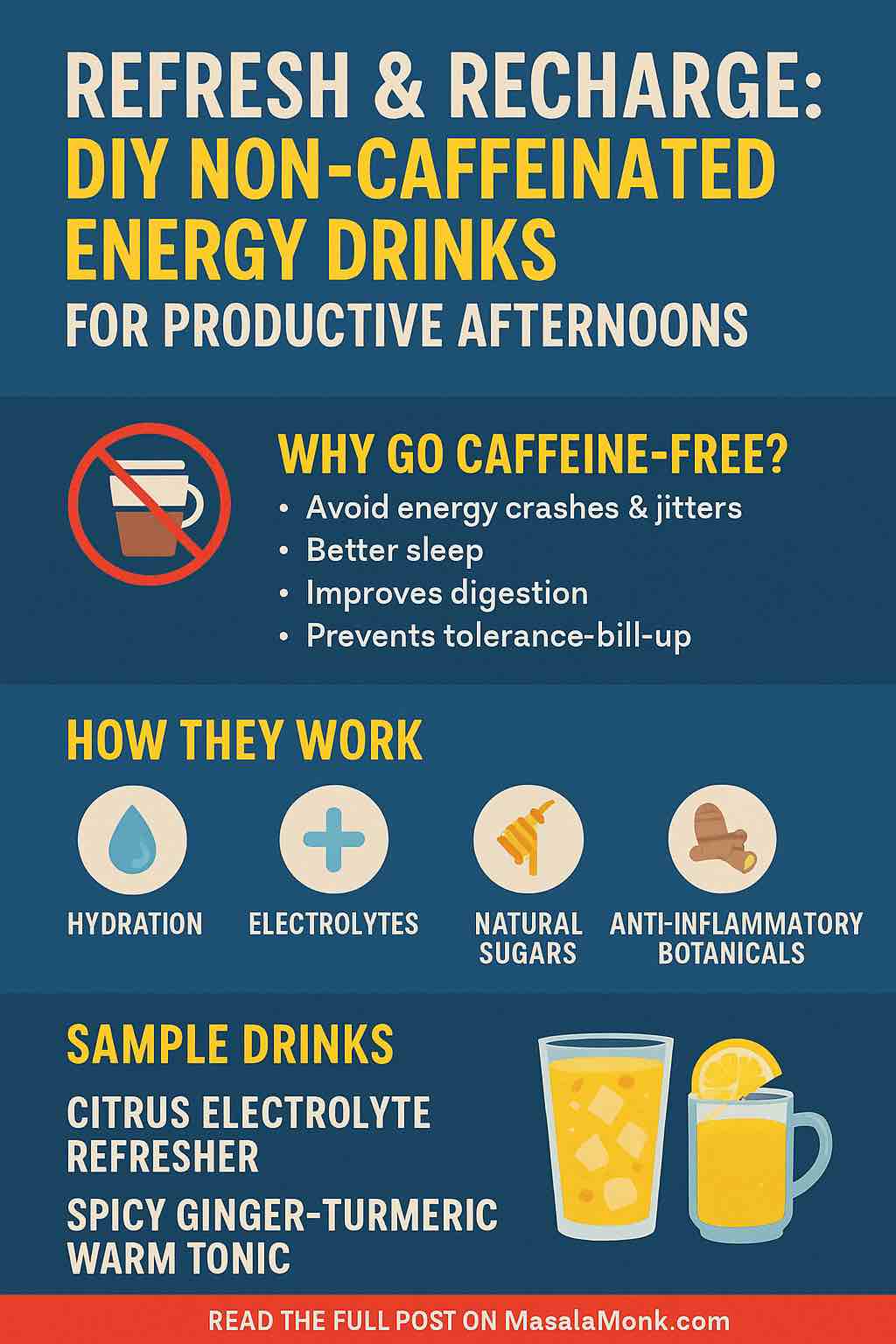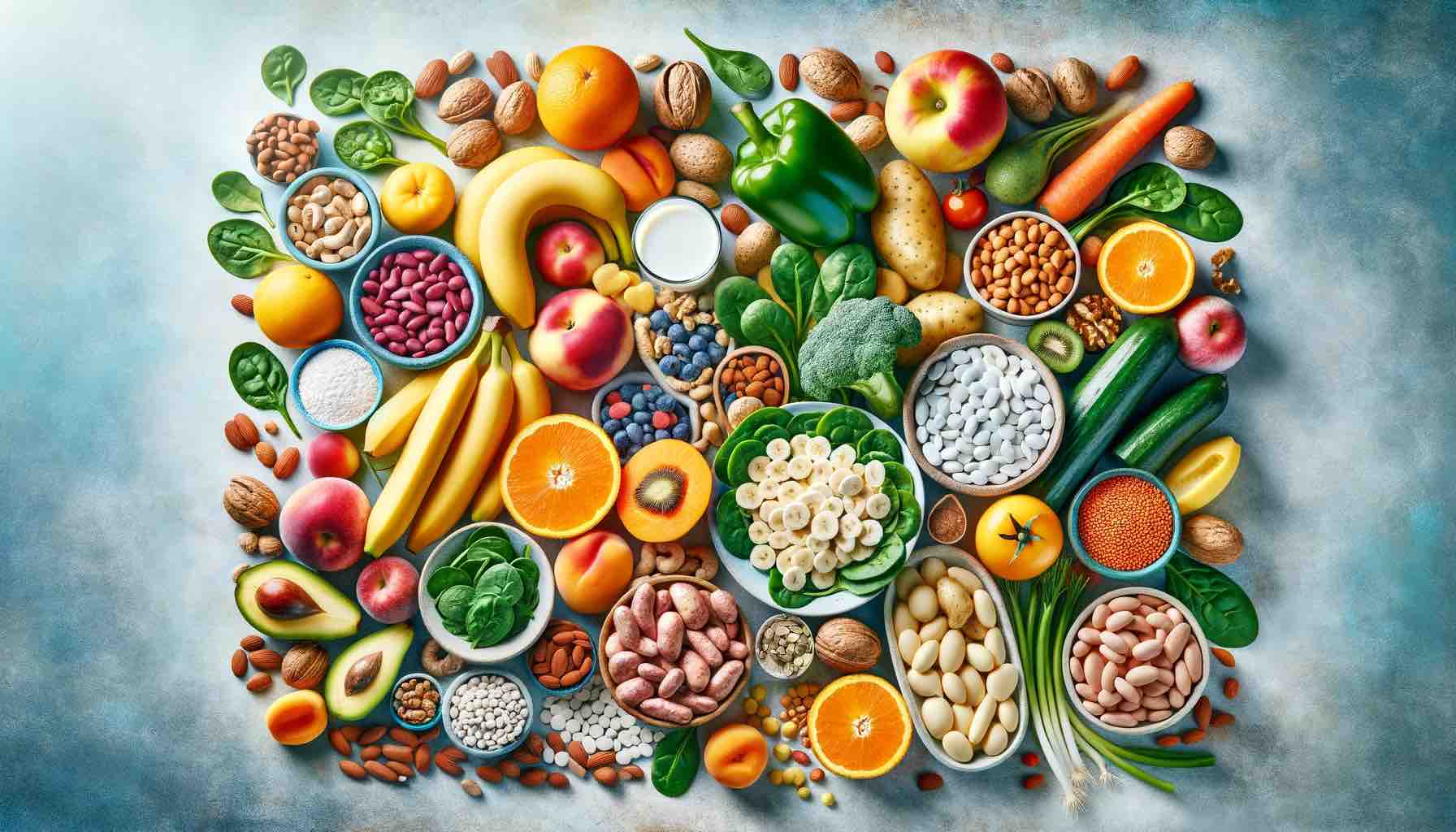
We’ve all been there — you wake up after a fun night out, your head is pounding, your mouth feels like sandpaper, and even the thought of getting out of bed seems impossible. That’s the dreaded hangover. And while there’s no magical cure, one of the most effective ways to bounce back is by turning to electrolyte drinks for hangovers.
Why electrolytes? Because alcohol doesn’t just dehydrate you — it also flushes essential minerals like sodium, potassium, and magnesium out of your system. These electrolytes are key for keeping your body’s fluid balance, energy levels, and even muscle function in check. Without them, you’re left feeling sluggish, foggy, and completely drained.
The good news is you don’t need to rely on expensive hydration powders or neon-colored sports drinks. With just a few simple ingredients from your kitchen, you can make powerful DIY electrolyte drinks that will help rehydrate your body, restore balance, and ease those brutal hangover symptoms. In this guide, we’ll walk through exactly why electrolytes matter, the key ingredients you’ll need, and finally share five easy homemade recipes to help you feel like yourself again.
Also Read: Top 12 Hangover Remedies from Around the World
💧 Why Electrolytes Are Important for Hangover Recovery
So, why do hangovers hit so hard — and how do electrolytes help? It all comes down to the way alcohol affects your body. When you drink, alcohol acts as a diuretic, which is just a fancy way of saying it makes you pee more often. Every bathroom trip isn’t just flushing out water, though — it’s also draining your body of vital electrolytes. Over time, this imbalance doesn’t just leave you dehydrated; it can even put added stress on your kidneys if recovery is neglected. Masala Monk’s piece on Alcohol & Kidney Health: The Hard Truth highlights just how serious that strain can be.
Research shows that alcohol can directly promote hangover symptoms, from headaches and dizziness to fatigue and nausea. That’s why after a night of drinking, you often wake up with:
- Headaches and dizziness – your brain is literally dehydrated.
- Extreme fatigue – low potassium and magnesium mess with your energy.
- Muscle cramps or weakness – your sodium levels are out of balance.
- Nausea or stomach upset – dehydration and salt loss irritate digestion.
Replenishing electrolytes helps fix this imbalance. Sodium and potassium restore fluid balance, magnesium supports energy production, and natural sugars (like from honey or fruit) actually help your body absorb electrolytes more effectively. This combination allows your body to rehydrate faster than with plain water, giving you relief from headaches, fatigue, and nausea much more quickly.
Think of it this way: drinking water is like patching a hole in the bucket, while drinking an electrolyte drink for hangovers is like filling the bucket back up with the right mix of fluids and minerals. It’s the missing piece your body desperately needs after alcohol.
🥬 Key Ingredients in DIY Electrolyte Drinks for Hangovers
Now that we know why electrolytes matter, let’s talk about what goes into making them. The beauty of DIY electrolyte drinks is that you can craft them at home with everyday ingredients — no need for fancy powders or overpriced bottles. Here are the building blocks that make an electrolyte drink effective for hangover recovery:
- Water – The foundation of hydration. Your body is mostly water, and it needs a lot of it after drinking.
- Salt (sodium chloride) – A small pinch goes a long way in restoring sodium levels and keeping fluid balance in check.
- Citrus juice (lemon, lime, orange) – Adds potassium for energy and vitamin C for immune support. Plus, the fresh flavor makes the drink more enjoyable.
- Natural sweeteners (honey, maple syrup) – A touch of natural sugar helps your body absorb electrolytes faster while giving you an energy lift.
- Coconut water – Nature’s electrolyte drink, packed with potassium and magnesium.
- Ginger – Calms nausea and eases stomach discomfort, a common hangover symptom.
- Apple cider vinegar – Provides trace minerals, supports digestion, and balances pH levels.
When you mix these simple ingredients in the right way, you create more than just a drink — you make a natural hangover recovery remedy that rehydrates your body and helps you feel human again. Just like when you’re battling dehydration from illness, replenishing sodium and potassium quickly restores fluid balance. Masala Monk’s guide on Electrolytes and Diarrhea explains how these minerals speed up hydration.
And the best part? You can mix and match depending on what you have at home. Whether it’s a quick lemon-honey blend, a coconut water mix, or a soothing ginger tea, these DIY options are versatile, effective, and way healthier than grabbing a sugar-packed sports drink.
🥤 DIY Electrolyte Drinks for Hangovers You Can Make at Home
Now that we’ve covered why electrolytes are so important — and the key ingredients that make them work — let’s get practical. You don’t need to stock up on pricey sports drinks or hydration powders; some of the best electrolyte drinks for hangovers can be made right in your own kitchen.
These five recipes are quick, natural, and use ingredients you probably already have at home. Each one has its own strengths — some are great for easing nausea, others are perfect for restoring energy — so you can choose whichever best fits how you’re feeling. In fact, many of the same soothing ingredients are recommended for sensitive situations like pregnancy — see Masala Monk’s post on Best Electrolyte Drinks for Pregnancy for ideas that overlap beautifully with hangover recovery.
🍋 Lemon & Honey Electrolyte Water for Hangovers
This simple recipe is a lifesaver the morning after drinking. The fresh lemon juice restores potassium, honey gives you quick energy, and a pinch of salt helps your body absorb fluids faster. It’s light, refreshing, and much easier on your stomach than plain water.
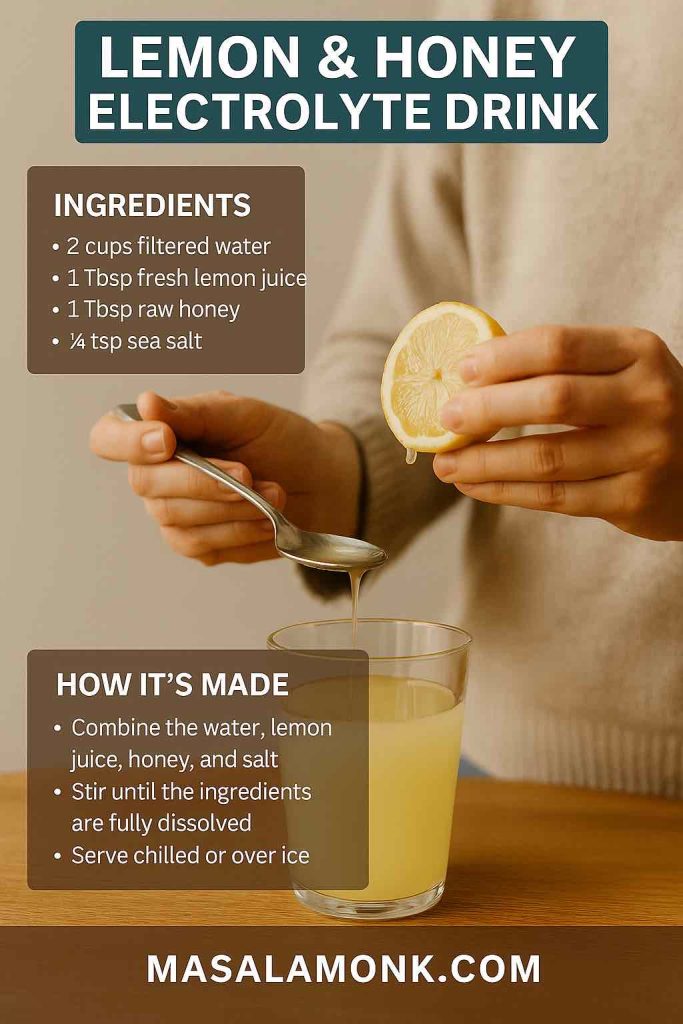
Ingredients (1 serving):
- 2 cups filtered water
- 1 tablespoon fresh lemon juice
- 1 tablespoon raw honey
- ¼ teaspoon sea salt
- Optional: a pinch of baking soda for extra balance
Instructions:
- Combine water, lemon juice, honey, and salt in a glass.
- Stir until fully dissolved.
- Chill in the fridge or add ice before drinking.
Why it works: This DIY electrolyte drink rehydrates quickly while being gentle on the stomach — perfect if you wake up groggy and dehydrated.
Also Read: Benefits of Lemon and Lime Water: Refreshing Hydration with a Citrus Twist
🥥 Coconut Water Electrolyte Mix for Hangovers
If you need something naturally sweet and hydrating, coconut water is your best friend. In fact, studies suggest coconut water may provide hydrating effects similar to sports drinks. Lifestyle experts also note that a tall glass of coconut water is often recommended for hangover recovery, making it a perfect DIY base. It’s packed with potassium and magnesium, making it one of the best natural hangover recovery drinks. Adding lime juice and a touch of salt boosts its effectiveness.
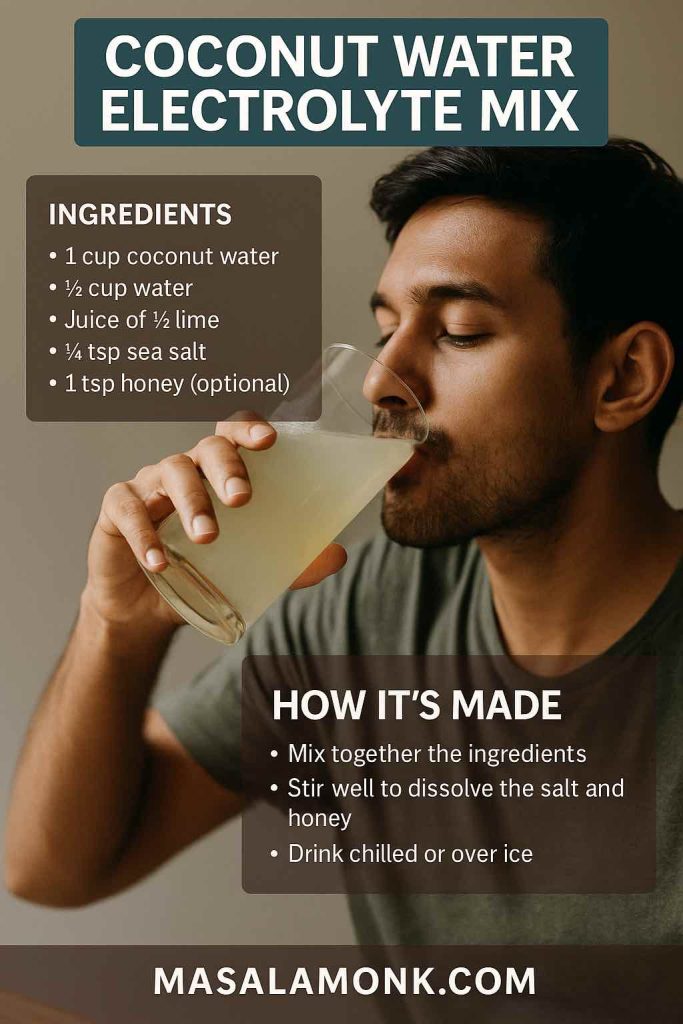
Ingredients (1 serving):
- 1 cup coconut water
- ½ cup filtered water
- Juice of ½ lime
- ¼ teaspoon sea salt
- 1 teaspoon honey or maple syrup (optional)
Instructions:
- Mix all ingredients in a tall glass.
- Stir well and chill before serving.
Why it works: Coconut water is nature’s sports drink, and when combined with lime and salt, it becomes a powerful rehydration tool for hangovers.
Also Read: Natural Pressure Regulator: How Coconut Water Can Help Manage High Blood Pressure
🌿 Ginger & Salt Electrolyte Tea for Hangovers
Sometimes a hangover comes with nausea, and the thought of chugging something sweet or cold isn’t appealing. That’s where this warm ginger tea comes in. Ginger has natural anti-nausea properties, while the salt and honey gently restore lost electrolytes.
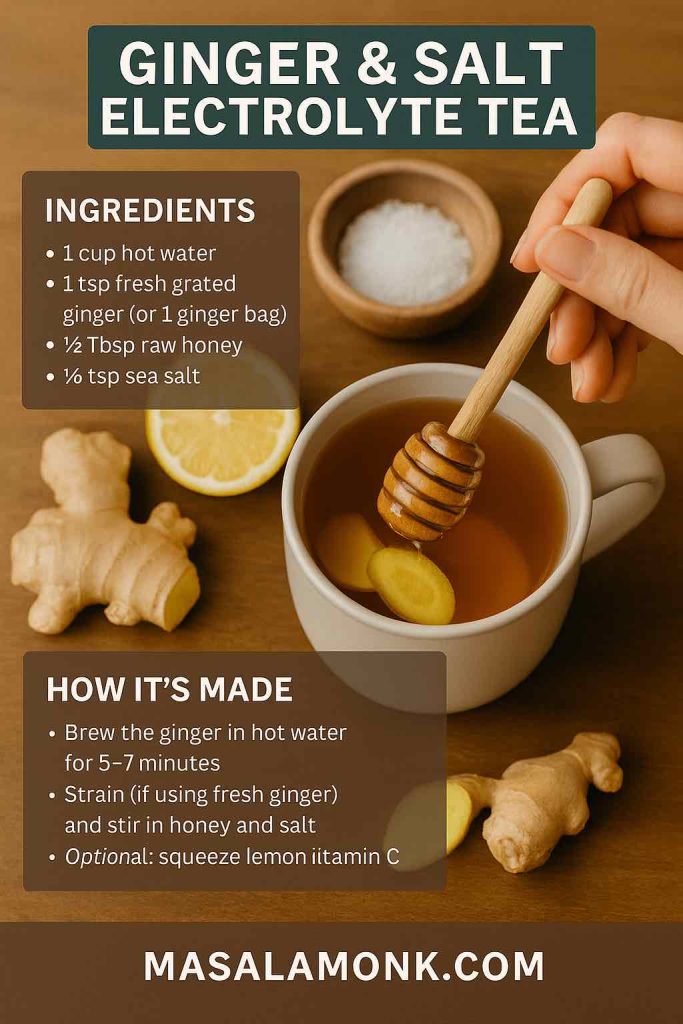
Ingredients (1 serving):
- 1 cup hot water
- 1 teaspoon fresh grated ginger (or 1 ginger tea bag)
- ½ tablespoon raw honey
- ⅛ teaspoon sea salt
- Optional: squeeze of lemon for extra vitamin C
Instructions:
- Brew the ginger in hot water for about 5–7 minutes.
- Strain (if using fresh ginger) and stir in honey and salt.
- Let cool slightly, then sip slowly.
Why it works: This soothing electrolyte drink for hangovers hydrates while calming an upset stomach — perfect if you wake up queasy.
Also Read: Ginger And Its Stunning Health Benefits
🍊 Orange Juice & Sea Salt Recovery Drink for Hangovers
If your hangover has left you tired and foggy, this bright and refreshing drink gives you a vitamin C and energy boost while replenishing electrolytes. Orange juice adds potassium and natural sugars, while sea salt improves hydration.
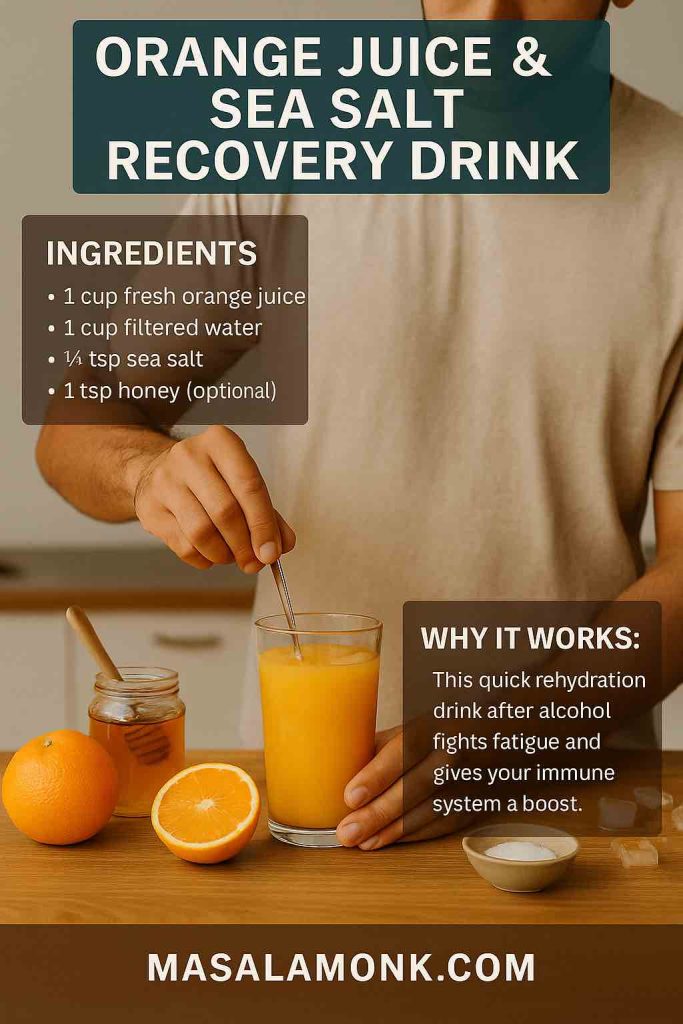
Ingredients (1 serving):
- 1 cup fresh orange juice
- 1 cup filtered water
- ¼ teaspoon sea salt
- 1 teaspoon honey (optional)
Instructions:
- Mix orange juice, water, and salt in a glass.
- Stir until combined and serve cold over ice.
Why it works: This is a quick rehydration drink after alcohol that helps fight fatigue while giving your immune system a boost.
Also Read: Orange Juice: Soothing Sore Throats and 5 Other Health Benefits
🍎 Apple Cider Vinegar & Honey Hydration Drink for Hangovers
For those hangovers that come with bloating or digestive discomfort, apple cider vinegar can be surprisingly helpful. Paired with honey and salt, it creates a balanced electrolyte drink that supports digestion while hydrating your body.
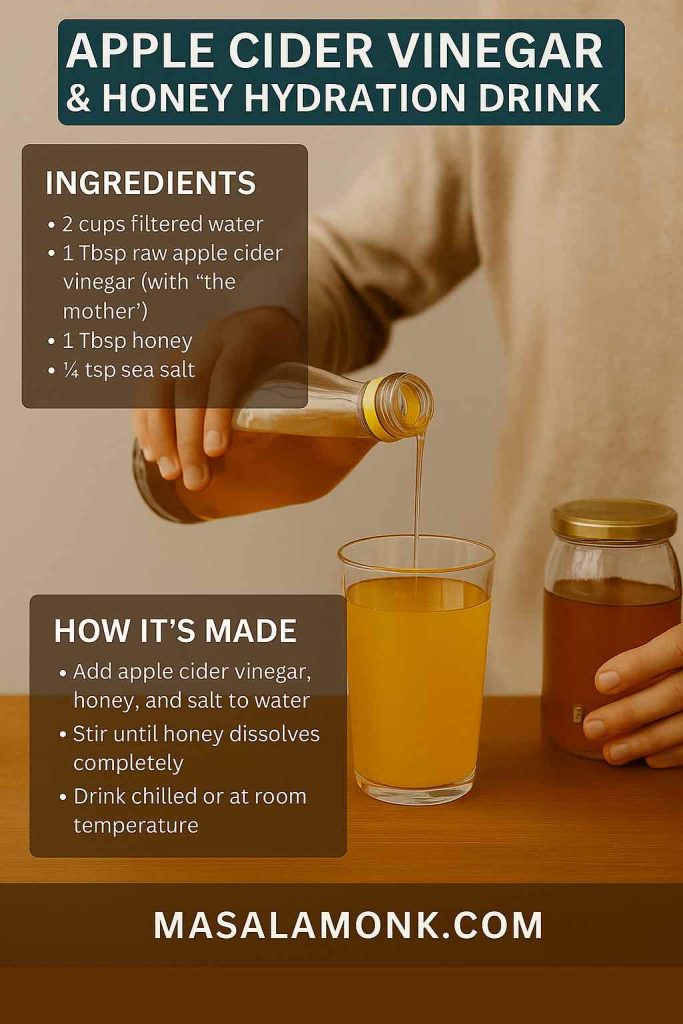
Ingredients (1 serving):
- 2 cups filtered water
- 1 tablespoon raw apple cider vinegar (with “the mother”)
- 1 tablespoon honey
- ¼ teaspoon sea salt
- Optional: dash of cinnamon for flavor
Instructions:
- Add apple cider vinegar, honey, and salt to water.
- Stir until honey dissolves completely.
- Drink chilled or at room temperature.
Why it works: Apple cider vinegar provides trace minerals and aids digestion, making this a smart hangover recovery drink when your stomach needs extra care.
Also Read: 5 Benefits of having Apple Cider Vinegar (ACV) on Empty Stomach
These DIY electrolyte drinks for hangovers are quick, affordable, and made with real ingredients — no artificial colors, no heavy sugar, just natural rehydration. Whether you need something light and refreshing, soothing for nausea, or energizing for fatigue, there’s a recipe here to help you bounce back after a night of drinking.
Remember: the best strategy is prevention — alternating water or an electrolyte drink between alcoholic beverages and having one before bed can help reduce the severity of a hangover. But when those mornings hit hard, these homemade recipes can make all the difference.
🔎 Quick Guide: Best DIY Electrolyte Drinks for Hangovers
Not sure which recipe to try first? Here’s a simple breakdown so you can pick the drink that matches your hangover symptoms:
| Recipe | Best For | Key Benefits |
|---|---|---|
| 🍋 Lemon & Honey Electrolyte Water for Hangovers | Morning rehydration | Gentle on the stomach, restores sodium + potassium, quick hydration boost |
| 🥥 Coconut Water Electrolyte Mix for Hangovers | Before bed or during drinking | High in potassium & magnesium, naturally sweet, prevents dehydration |
| 🌿 Ginger & Salt Electrolyte Tea for Hangovers | Nausea & upset stomach | Soothes digestion, replaces lost electrolytes, hydrating without being heavy |
| 🍊 Orange Juice & Sea Salt Recovery Drink for Hangovers | Midday recovery & fatigue | Vitamin C boost, natural sugar for energy, balances hydration |
| 🍎 Apple Cider Vinegar & Honey Hydration Drink for Hangovers | Digestive discomfort & bloating | Aids gut health, provides trace minerals, rehydrates with balanced electrolytes |
🛡️ Extra Tips to Prevent Hangovers with Electrolytes
Of course, the best cure is always prevention. While these homemade electrolyte drinks for hangovers work wonders the next morning, you can also use them before and during your night out to minimize symptoms. Here are a few tips:
- Hydrate before drinking: Have a glass of water or an electrolyte drink before heading out.
- Alternate drinks: A good rule of thumb is one glass of water or electrolytes for every alcoholic drink.
- Refuel before bed: A quick DIY electrolyte mix before you sleep can lessen hangover severity.
- Choose lighter drinks: Dark liquors like whiskey and rum contain more congeners (byproducts of fermentation) that worsen hangovers.
A little planning goes a long way — and your morning self will thank you.
Prevention is the smartest strategy. If you’re curious about speeding up recovery beyond hydration, check out Masala Monk’s practical guide on How to Get Alcohol Out of Your System Fast.
🌱 Why DIY Electrolyte Drinks Beat Store-Bought
You might be wondering: why not just grab a sports drink? While store-bought options like Gatorade or Pedialyte can help, they often come with excess sugar or additives. As per The Guardian, Electrolyte sachets may only provide minor support for hangovers, so if you want a cleaner, more natural approach, homemade drinks are usually the better option.
- Less sugar: Many sports drinks are loaded with sugar, which can actually make nausea worse.
- More natural: DIY recipes use real fruit juice, honey, and sea salt instead of artificial dyes and additives.
- Customizable: You can adjust sweetness, saltiness, or flavor depending on what your body needs.
- Budget-friendly: Ingredients like lemon, honey, and salt cost pennies compared to pricey hydration powders.
In short, homemade electrolyte drinks give you all the benefits without the unnecessary extras.
Read More about Pedialyte and Electrolytes for Diarrhea and more about Is Energy drink Gatorade Worth the Hype?
✅ Final Thoughts on Electrolyte Drinks for Hangovers
Hangovers may be a painful reminder of a fun night, but recovery doesn’t have to be miserable. By replenishing your body with fluids and minerals, you can bounce back faster, ease symptoms, and feel like yourself again.
These DIY electrolyte drinks for hangovers are simple, natural, and effective — whether you need quick rehydration, nausea relief, or digestive support. And remember, prevention is key: sip electrolytes before bed, alternate them during drinking, and you’ll likely wake up feeling much better.
So next time you find yourself dreading the morning after, skip the neon sports drink and try one of these homemade remedies instead. Your body (and your wallet) will thank you.

❓ Frequently Asked Questions About Electrolyte Drinks for Hangovers
Even after learning the recipes, you might still have questions about how electrolytes really help, when to drink them, and which options are best. To make this guide even more useful, here are answers to some of the most common questions about electrolyte drinks for hangovers.
1. What are the best electrolyte drinks for hangovers?
The best electrolyte drinks for hangovers are those that restore sodium, potassium, and magnesium while rehydrating your body. DIY options like lemon-honey water, coconut water mixes, or ginger tea work well. Store-bought choices like Pedialyte, Liquid I.V., or LMNT are also popular.
2. Do electrolytes really help a hangover?
Yes, as per EatingWell as well – electrolytes absolutely help with hangovers. Alcohol dehydrates you and depletes essential minerals. Replacing them helps your body absorb fluids faster, reduces headaches, boosts energy, and eases nausea.
3. Should I drink electrolytes before or after drinking alcohol?
Ideally, both. Having an electrolyte drink before and during drinking can prevent severe dehydration. Drinking electrolytes before bed and the next morning helps speed up recovery and reduce hangover symptoms.
4. Are homemade electrolyte drinks better than store-bought?
Homemade electrolyte drinks are often healthier because you control the ingredients. They usually have less sugar, no artificial dyes, and can be customized to your taste. Store-bought options like Gatorade or Pedialyte work too, but DIY recipes are more natural and budget-friendly.
5. Can coconut water cure a hangover?
Coconut water can’t “cure” a hangover, but it’s an excellent natural rehydration drink. It’s packed with potassium and magnesium, which help restore electrolyte balance and fight fatigue. Adding a pinch of salt makes it even more effective.
6. Is Gatorade good for hangovers?
Yes, Gatorade can help because it contains sodium and potassium. However, it’s higher in sugar and lower in electrolytes compared to medical-grade drinks like Pedialyte. If you don’t like the taste of DIY mixes, Gatorade is a convenient option.
7. How much electrolyte drink should I have for a hangover?
Start with one serving (about 2 cups / 500 ml) in the morning. If symptoms persist, you can sip another throughout the day. The key is to drink slowly and steadily so your body absorbs the fluids.
8. Can I drink electrolyte water while drinking alcohol?
Absolutely. Alternating alcohol with water or electrolyte drinks is one of the best ways to prevent hangovers. It slows down dehydration and keeps your mineral balance more stable.
9. Do electrolyte powders like Liquid I.V. or LMNT work for hangovers?
Yes, both Liquid I.V. and LMNT are popular for hangover recovery. Liquid I.V. contains glucose and sodium for fast absorption, while LMNT is sugar-free and high in sodium, great for those avoiding added sugars. Both are effective depending on your needs.
10. What’s the fastest way to rehydrate after drinking?
The fastest way is to combine water + electrolytes. Plain water alone won’t fully restore balance. A DIY electrolyte drink, coconut water with salt, or a packet like Pedialyte or DripDrop will help you recover more quickly and feel better faster.
🔑 Pro Tip:
There’s no one-size-fits-all hangover solution. Try different electrolyte drinks and see which one helps your body the most. The key is consistency — hydrate before, during, and after drinking for the best results.

